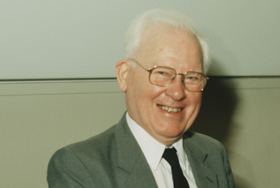Resources from past events organised by the SPRG Group can be found below. If there is an event you would like details for, or questions about any past meeting resources that we can make available, please email us.
Careers in Earth Science
Date: 23 March 2013
Speaker: Tony Konlon, Department of Earth and Enviromental Sciences

The SPRG Group hosted this lecture as part of Climate Week (
www.climateweek.com).
Earth’s climate has been controlled throughout its 4.5 billion-year history by a wide range of natural environmental processes. These processes include volcanism, the weathering and erosion of rocks on land and in the oceans, variations in Earth’s orbit around the sun and in the sun’s intensity, and so on.
This talk focused on a few key episodes of the last 200 million years when abrupt global warming was caused by the sudden introduction of very large quantities of carbon dioxide into the atmosphere and oceans. These abrupt events were associated with major climatic shifts, and also with major changes in life on land and in the oceans. Importantly, the records of these ancient events can provide a picture of how the Earth may evolve in the coming decades and centuries as a result of humankind’s activities.
Holocene Climate Change
Date: 12 September 2012
Speaker: Paul Valdes, Bristol
This meeting examined high frequency climate changes reflected in the geological record, and the pacings of change and their geological consequences, during the Holocene - the past 11,700 years.
Despite the general stability of the Holocene climate, there have been distinct cool/dry events, for example at 8200, 6600, 5600, 4100 and 2700 years ago and in the Little Ice Age between roughly 1400 and 1850, and warm/wet periods like the Holocene climatic optimum, the Roman Warm Period and the Medieval Warm Period.To what extent were these events global rather than regional? What drove them? What produces roughly periodic changes at intervals of about 1500 years seen in marine records and speleothems? Resolving these kinds of questions will aid understanding the modern climate and the warming that has taken place since around 1970.
Recent improvements in physical- and chemo-stratigraphy and modelling allow us to examine in much more detail than hitherto the effects of a wide variety of natural causes, natural cycles, and greenhouse gases, and to integrate results from different land and ocean areas in ways not formerly possible. The results of the meeting should help to inform the ongoing deliberations of the IPCC and to dispel some current misconceptions.